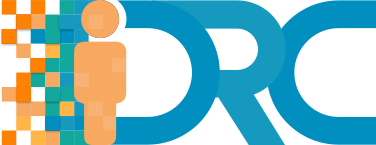The aim of the DRC project is to infuse contemporary pedagogical practices in quality lifelong learning for students and teaching professions including teachers, school leaders and teacher educators across Europe. Specifically, the project sought to improve students and teachers digital citizenship and competency by fostering the development of digital literacy skills through education. Digital citizenship is defined as “the norms of appropriate, responsible behavior with regard to technology use” (Ribble, 2011, p. 10).
The DRC project focused on the five competences which are the hallmarks of digital citizenship needed by citizens today for full social inclusion within a digital ecology of the Internet and could serve as an umbrella or meta-framework for current frameworks, initiatives, curricula, and programmes. The primary objective of the DRC was to equip EU citizens (students and teaching professions) with transversal skills (digital skills and media literacy) and especially give opportunities to vulnerable learners to become active citizens in a digital highly connected world.
DRC comprises five phases for targeting digital literacy through the five key areas of digital competence. These areas include: (1) Information and data literacy, (2) Communication and collaboration, (3) Digital content creation, (4) Safety, and (5) Problem solving (Ferrari, 2013).
